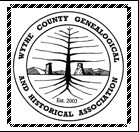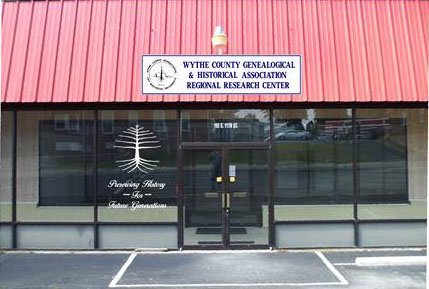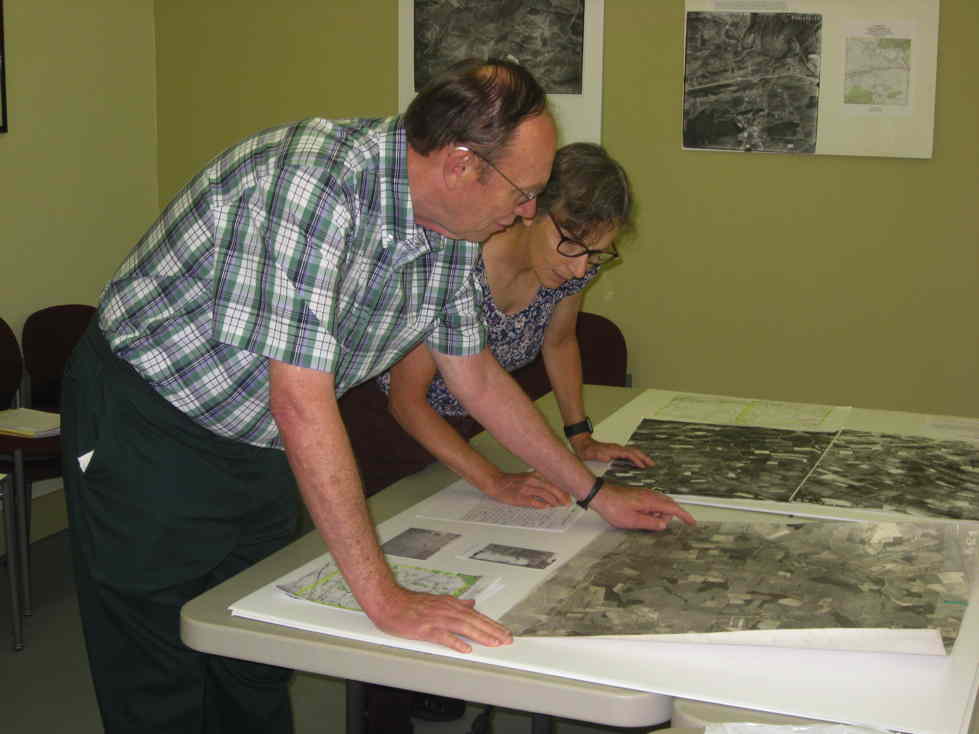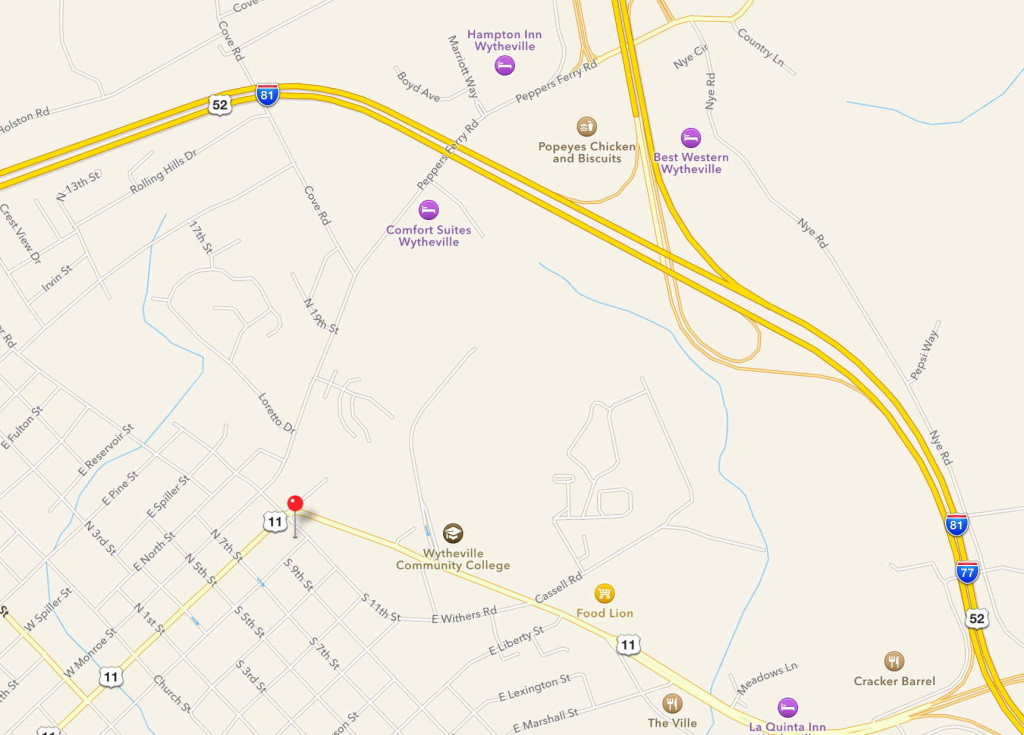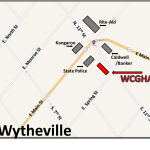Wythe County Genealogical and Historical Association Regional Research Center
The Wythe County Genealogical and Historical Association is a non-profit Regional Research Center for the genealogy and history of Southwest Virginia, with a focus on area families and history. We provide a variety of resources for genealogical research, and sponsor an annual Family History Institute conference that brings in speakers and researchers from all over the U.S. We invite you to visit us at 165 South 11th Street in Wytheville, VA. Click here for directions and hours and location. Wythe County Genealogical and Historical Association is an equal opportunity provider.
Wythe County
Wythe County was organized by an Act of the Virginia Assembly on December 1, 1789. Although he never lived here, the county was named for George Wythe, a noted lawyer of Eastern Virginia, one of the signers of the Declaration of Independence and the designer of the Virginia Seal.
When Wythe County was formed, the area included part of what is now the eastern part of Smyth County, the western part of what is now Pulaski County, all of Grayson and Carroll counties, and most of what is now Bland County. By 1861, the county limits had been permanently established.
Wytheville
In May of 1790, Christopher Simmerman donated ninety acres for the town, and John Davis contributed ten acres with a large spring. These donations of land were accepted in the first county court session, held at the home of James McGavock at Fort Chiswell.
On June 22, 1790, the court justices chose several of the leading citizens to direct the survey in laying off the one hundred acres for a town and a place for the “permanent court house.” The town survey was completed by November 24 of that year. Each lot was one-half acre in size. At this time, the town had no specific name, other than Wythe Court House, a name often used in the early days.
On October 19, 1792, the General Assembly passed an act establishing the town as Evansham, probably pronounced Evans-ham as it was named for Jesse Evans, a prominent local citizen at the time.
On March 6, 1839, following the great town fire, the name was changed to Wytheville at a time when the town had 500 inhabitants.
Rural Retreat
The name Rural Retreat first appeared in Wythe County on a marriage return sent to the court by Lewis Sid Marshall, Minister of the Gospel, on April 28, 1827. This predates by six years the establishment of the Rural Retreat Post Office in 1833 when the same Lewis S. Marshall was named as the first postmaster. At this time, no town existed where the present Town of Rural Retreat is located. Following the custom of the day, the mail was delivered to the home of the postmaster who had the right to name the office. Marshall lived on the Great Road, west of present St. Paul Lane and the former residence of Martha Brown DeBord, now deceased. When the railroad came to the western end of Wythe County in the mid-1850s, the depot at present Rural Retreat was named Mt. Airy, for the little town located on the Great Road (now US 11), established in 1811 by Valentine Staley. The town was sometimes referred to as Staleytown.
As the railroad town grew, the post office, named Rural Retreat, was moved to the Mt. Airy Depot, causing great confusion. In the aftermath of the destruction of the depot by the Federal troops, the name Rural Retreat was given to the new depot and the town in 1866, to coincide with the name of the post office. Stores, banks, hotels, churches, mills, shops, newspapers and telephones reached the town in due time and Rural Retreat was incorporated on July 24, 1911, and received a new charter in 1954.
